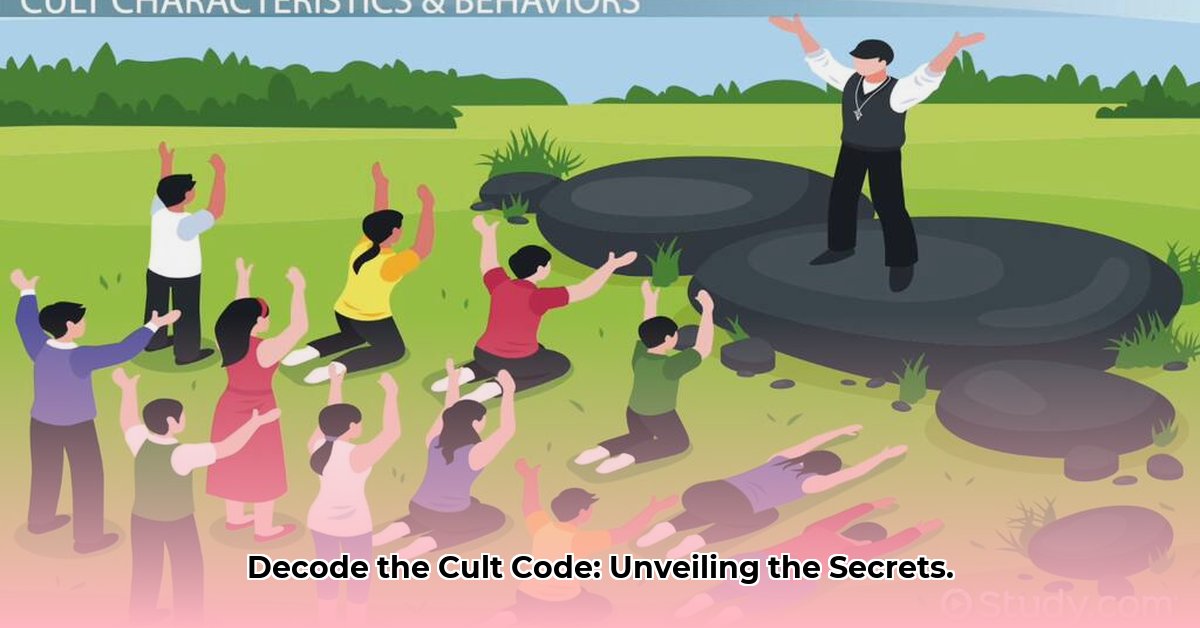
Cult Meaning in English: Unpacking a Tricky Word
What exactly is a cult? It's not as straightforward as you might think. Dictionary definitions often point to intense devotion to a person, idea, or thing, sometimes with a religious undertone. But this is a superficial understanding. The meaning of "cult" is highly context-dependent; academics, law enforcement, and even your neighbour might have vastly different interpretations. Is a fiercely loyal fan base a cult? Where’s the line between passionate followers and something harmful? This ambiguity makes understanding the nuances crucial.
More Than Just a Label: The Subtleties of Cult Dynamics
The term "cult" carries significant negative connotations, often conjuring images of brainwashing, control, and abuse. However, not every group labelled a "cult" is inherently harmful. Consider certain historical religious movements – were they all cults? The crucial factor isn't necessarily the group's beliefs, but rather how they operate and the impact of their actions on their members.
How Cults Operate: An Insider's Perspective
Harmful cults share certain common traits. They often isolate members from the outside world, employing manipulative techniques to control their thoughts and behaviours. A charismatic leader typically holds absolute authority, and members' lives revolve entirely around the group. This environment creates fertile ground for abuse, often escaping the notice of outsiders. Understanding these dynamics is vital for protecting vulnerable individuals.
Different Perspectives, One Word: Stakeholder Analysis
Different stakeholders view the term "cult" through unique lenses:
| Stakeholder Group | Perspective on "Cult" |
|---|---|
| Academics/Researchers | Focus on group dynamics, manipulation techniques, and societal impact. |
| Law Enforcement | Concerned with illegal activities and safeguarding individuals from harm. |
| Mental Health Professionals | Assist individuals in leaving cults and addressing the resulting trauma. |
| The General Public | Often holds a fearful or sensationalised view, influenced by media portrayals. |
Identifying Manipulative Cult Tactics and Protecting Yourself
The word "cult" frequently triggers strong negative responses. It evokes images of brainwashing and control. But what truly constitutes a cult? Understanding this is key to protecting yourself from manipulative tactics. Subtle manipulation can be incredibly dangerous.
Defining "Cult": Beyond the Label
Importantly, there's no single, universally accepted legal definition of "cult." Instead, we must focus on behaviour. Cults employ manipulative tactics to control members, exploiting their vulnerabilities. These aren't necessarily religious groups; any group exhibiting these characteristics displays cultic tendencies.
Think of a cult as a web. The charismatic leader sits at the centre, weaving a deceptive web of control. Each strand represents a manipulative tactic, designed to trap and control victims. Professor Steven Hassan, a renowned expert on cult mind control, has detailed many of these tactics in his extensive research.
Recognising the Red Flags: Warning Signs of Manipulation
Several manipulative tactics consistently appear in cultic groups:
- Love Bombing: Overwhelming displays of affection to quickly establish loyalty and dependence.
- Isolation: Separating members from family and friends, fostering vulnerability and dependence on the group.
- Thought Reform (Mind Control): Systematic indoctrination and repetition of group ideology.
- Fear-Mongering: Creating fear and urgency, portraying the outside world as hostile.
- Guilt and Shame: Making members feel inadequate to encourage loyalty.
- Charismatic Leader: A central figure who demands unquestioning obedience.
- Exploitation: Financial, emotional, or sexual exploitation.
Building Your Defences: Protective Strategies
Protecting yourself requires a multi-pronged approach:
- Develop Critical Thinking: Question claims, seek evidence, and consider diverse viewpoints.
- Strengthen Your Support Network: Maintain strong bonds with family and friends for external perspectives.
- Cultivate Self-Awareness: Understand your values and beliefs to strengthen your sense of self.
- Be Wary of Charismatic Leaders: Don't blindly trust those demanding total allegiance.
- Trust Your Intuition: If something feels wrong, don't ignore your instincts.
A strong sense of self and a supportive network are your best defences.
Key Takeaways:
- Cults manipulate to control members.
- Identifying tactics like love bombing and thought reform is crucial.
- A strong sense of self and support network offer protection.
- Critical thinking is your most effective tool against manipulation.